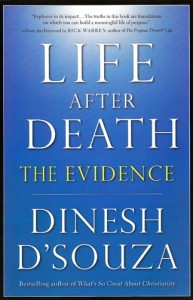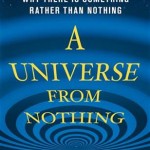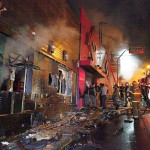“Life After Death: The Evidence”
by Stephen M. Barr
Filed under Book Reviews
Life After Death: The Evidence
by Dinesh D’Souza
Regnery, 256 pages, $27.95
While much apologetic effort has been spent arguing for the existence of God, relatively little has been spent defending the reasonableness of belief in an afterlife and the resurrection of the body, despite the fact that these are among the hardest doctrines of biblical religion for many modern people to accept. D’Souza brings to the task his renowned forensic skills. (By all accounts, he has bested several of the top New Atheists in public debate.) He understands that persuasion is less a matter of proof and rigorous argument than of rendering ideas plausible and overcoming obstacles to belief.
 One obstacle to belief in bodily resurrection is the difficulty of grasping that there could be places that are not located in the three-dimensional space we presently inhabit, or that there could be realms where our intuitions about time, space, and matter simply do not apply. D’Souza rightly points out that modern physics has broken the bounds of human imagination with ideas of other dimensions—and even other universes—and has required us to accept features of our own universe (at the subatomic level, for example.) that are entirely counterintuitive. He shows how blinkered, by contrast, is the thought of many who think themselves boldly modern, such as Bertrand Russell, who asserted that “all experience is likely to resemble the experience we know.”
One obstacle to belief in bodily resurrection is the difficulty of grasping that there could be places that are not located in the three-dimensional space we presently inhabit, or that there could be realms where our intuitions about time, space, and matter simply do not apply. D’Souza rightly points out that modern physics has broken the bounds of human imagination with ideas of other dimensions—and even other universes—and has required us to accept features of our own universe (at the subatomic level, for example.) that are entirely counterintuitive. He shows how blinkered, by contrast, is the thought of many who think themselves boldly modern, such as Bertrand Russell, who asserted that “all experience is likely to resemble the experience we know.”
Another impediment to belief in life after death is our experience of the disorganization of thought as sleep approaches and the mental decline that often precedes death. While near-death experiences do not prove as much as D’Souza suggests in his interesting chapter on the subject, the discovery that many have a surge of intense and coherent experience near the very point of death does counteract to some extent the impression of death as mere dissolution.
Read rest of review.
Related Posts
Note: Our goal is to cultivate serious and respectful dialogue. While it's OK to disagree—even encouraged!—any snarky, offensive, or off-topic comments will be deleted. Before commenting please read the Commenting Rules and Tips. If you're having trouble commenting, read the Commenting Instructions.












